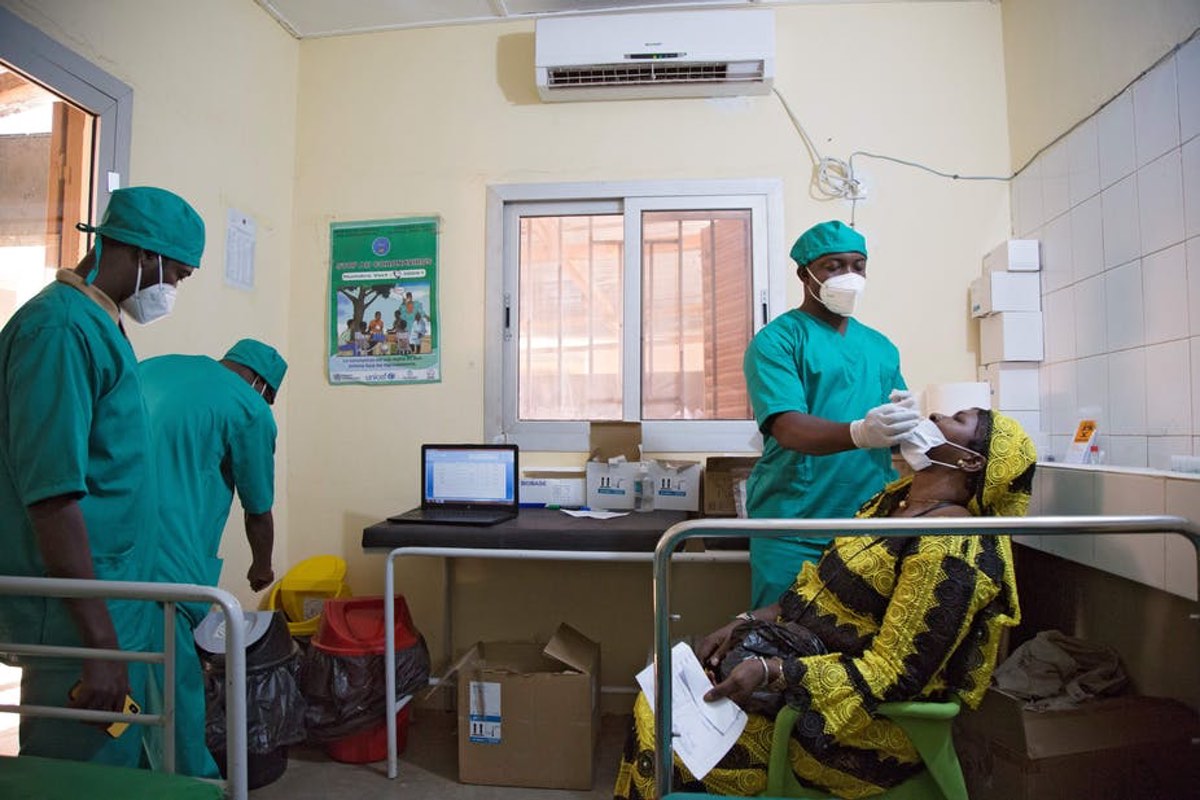Burtram C. Fielding, University of the Western Cape and Dewald Schoeman, University of the Western Cape
Back at the start of the COVID-19 pandemic, case numbers on the continent were still modest. But predictions and projections suggested the disease was going to cut a swathe through Africa.
In April 2020 the United Nations Economic Commission for Africa sounded the alarm bell:
Anywhere between 300,000 and 3.3 million African people could lose their lives as a direct result of COVID-19, depending on the intervention measures taken to stop the spread.
The World Health Organisation Regional Office for Africa forecast that up to 190,000 people could die in the first year of the pandemic if COVID-19 in Africa was not controlled.
Twelve months later, those dire forecasts have, largely, not been realised. By the end of April 2021 the total COVID-19 cases in Africa numbered 4,431,639, with some 117,934 deaths reported. South Africa alone accounts for around a third of the caseload, but almost 50% of the deaths. Indeed 117,943 deaths are tragic. But the number is not nearly as high as predicted by some.
Read more: COVID-19 and HIV: so far it seems the outcome is not what was feared
Many possible theories for this comparatively modest outbreak are being floated. One theory points to Africa’s atypically young population – young people are less at risk of severe COVID-19 and hospitalisation. Another theory is that African populations might have a genetically linked resistance to the coronavirus. Some think the widespread use of pharmaceutical treatments and childhood vaccines such as anti-malarial drugs and the Bacillus Calmette-Guerin childhood vaccine might play a part, and others point to the continent’s lower population density.
In our recent paper we explore the possible links between SARS-CoV-2 infection, COVID-19 disease and nutrition. Severe malnutrition is the most prevalent cause of immunodeficiency in the developing world.
We focused on malnutrition that leads to deficient levels of leptin, such as is seen in protein energy malnutrition, a deficiency of dietary protein despite sufficient calorie intake. Protein energy malnutrition is a global issue, and while the condition has decreased in Asia, African nations have reported a continued increase. Leptin is a hormone that is made in the fat cells of the body and has multiple roles in the immune system.
Leptin deficiency caused by malnutrition certainly does not protect a person from infection by the coronavirus causing COVID-19. But, based on the work of others in molecular medicine and immunology, we suggest it might counteract the harm caused by the excessive inflammation that occurs with COVID-19 disease. Of course, this would not be a reason to relax efforts to fight any form of malnutrition.
Leptin increases the body’s response to inflammatory cytokines – proteins that regulate inflammation. Overweight COVID‐19 positive patients tend to have higher leptin levels. And high leptin levels are associated with severe COVID‐19. Therefore, the impact of leptin on the immune system and its correlation with COVID-19 progression and severity could also make it a valuable biomarker, for predicting patient outcomes.
Nutrition, leptin and the immune system
Malnutrition includes undernutrition (wasting, stunting, underweight), inadequate vitamins or minerals, overweight and obesity. We know that malnutrition has been linked to changes in the immune system – this is especially so with protein energy malnutrition.
The immune system of people with a balanced nutritional intake responds to infection by releasing cytokines. These are signalling molecules that instruct the immune system to attack invading microbes. Most commonly, the attack takes the form of inflammation. Once the invading microbes are eliminated from the body, the inflammation disappears and the body returns to normal. This careful balance of activation and deactivation of the inflammatory response is crucial for normal functioning of the body.
As we’ve learned over the past year, in many severe COVID-19 cases the immune system produces a surge of cytokines, known as a cytokine storm. This causes a prolonged hyper-inflammatory response that does more harm than good when it attacks the body’s organs.
In people with low leptin levels, such as those with protein energy malnutrition, the immune system produces more anti-inflammatory cytokines and fewer inflammatory ones.
This shift in the immune response in favour of an anti-inflammatory profile would, in theory, counteract the dire consequences of the hyper-inflammatory response often seen in severe COVID-19 cases, where the patient’s organs can be damaged.
But it’s also possible that this anti-inflammatory response could mask the symptoms of malnourished people infected with COVID-19. They might appear to have a mild to moderate cold or flu rather than COVID-19. This means that the true number of COVID-19 infections could be underestimated and could contribute to transmission of the disease because people don’t know they are infected.
Looking ahead
International lockdowns have highlighted issues around food insecurity. This includes consuming the right amount of the right nutrients.
Here we theorise that deficient leptin levels caused by malnutrition might protect against severe COVID-19 and COVID-19-related death. This could be another reason we are seeing lower than expected COVID-19 deaths in Africa.
But even if this is true, we should not ignore the fact that malnutrition is killing millions and we should not curb efforts to eliminate food insecurity globally.
Burtram C. Fielding, Professor and Director: Research Development, University of the Western Cape and Dewald Schoeman, PhD Candidate, Molecular Biology and Virology, University of the Western Cape
This article is republished from The Conversation under a Creative Commons license. Read the original article.

